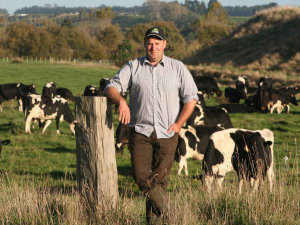OPINION: Unsurprisingly farmer confidence is the lowest it has been since Federated Farmers began twice-a-year surveys in 2009.
The lobby's January survey results show farmers - already concerned about a looming avalanche of Labour Government-sponsored legislation - are dealing with Omicron and rising costs, partly due to a war halfway around the world.
Of responses from nearly 1,000 farmers from around the country, a net 7.8% considered current economic conditions to be good, a 10.1 point decline from the July 2021 Federated Farmers Farm Confidence Survey, when 17.9% considered conditions to be good.
The survey shows farmers don't expect things to improve anytime soon. Looking forward, a net 64% of farmers believed general economic conditions would worsen over the next 12 months, a 25-point deterioration from the 39% in the July survey. Sentiment about general economic conditions is at the lowest level since the Feds surveys began in July 2009, surpassing the previous low in July 2020.
Federated Farmers president Andrew Hoggard says the results are even more disturbing when you consider farmers were answering the survey before the surge of Omicron cases in New Zealand and Russia's invasion of Ukraine, both of which will weigh on economic growth.
While a net 61.1% of farmers reported making a profit, a 5.5 point increase on July 2021, a net 11.2% expected their profitability would decline in the year ahead, 16 points down on six months earlier when a net 4.4% expected profitability would improve. Farmers are enjoying strong returns on meat and dairy right now thanks to high global demand and food security concerns, but clearly they expect a lot of that revenue to go back out again with higher fuel and fertiliser prices, rising labour costs, and inflation.
The survey showed a net 52.7% of respondents expected their spending to increase over the next 12 months (up from 32.6% six months ago).
The survey also shows that staff shortage is also playing on the minds of farmers. This vindicates the dairy sector seeking more overseas workers.
Asked to list their greatest concerns, those farmers who completed the January survey chose climate change policy and ETS (18.7% of respondents), followed by regulation and compliance costs (13.1%), and freshwater policy (9.5%). This result is unchanged from the July 2021 survey and shows farmers concerns are deep-rooted and not going away anytime soon.


















